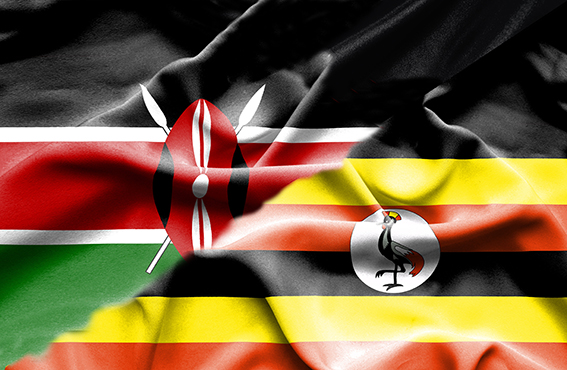Kenya-Uganda trade standoff: Legal battle after denied licence and concerns over fuel import crisis

According to trade statistics from 2021, Uganda is a major destination for Kenyan exports, making it a crucial trading partner. As a landlocked country, Uganda heavily relies on Kenya and Tanzania to access goods that arrive via sea.
It, therefore, came as a surprise that Uganda has had to turn to the East African Court of Justice to resolve a nontariff barrier that greatly impacts Uganda’s access to petroleum products.
Kenya has refused to grant a license to a government-owned Ugandan entity, the Uganda National Oil Company (UNOC), that would enable it to operate and handle fuel imports at the Mombasa Port headed for Kampala.
What is interesting in the case is that for Uganda to resort to legal action, the usual non-tariff barrier (NTB) resolution mechanisms, including diplomacy, have failed. The EAC Sectoral Committee on Trade is one of the pathways used to resolve NTBs. In its last meeting in November 2023, the committee noted 11 outstanding NTBs, but the matter of denying a license to UNOC did not come up, which implies that the matter arose later. As other channels have failed and the matter is urgent, Uganda has resorted to court.
The case was filed on December 28, 2023, but the license was denied in November. What seems to be the bone of contention is that Kenya has imposed a number of requirements which Uganda deems unnecessary for goods that are in transit and not destined for Kenya. The requirements appear to go against an agreement reached in April 2023 to allow Uganda to import its own fuel products. The decision was reached after Kenya decided to enter into a Government-to-Government (G2G) agreement in a credit-based plan to import diesel, super petrol, and jet fuel that would reduce the need for foreign currency and stabilise the Kenyan shilling. After a competitive bidding process organised by the Ministry of Energy, the Kenyan government selected oil import suppliers to provide petroleum products on a 6-month credit basis. The G2G agreement, governed by the Petroleum (Importation) Regulations, 2023 (Legal Notice No. 3 of 2023), supersedes the existing Open Tender System (OTS) method, which was reported to cost approximately Ksh 75 billion (equivalent to $500 million) each month and which constitutes 28% of the country’s total import expenditure.
This prompted Uganda to start buying fuel directly from Vitol Bahrain, but the move would have denied the Kenya Revenue Authority taxes that local firms earn from acting as middlemen to Ugandan counterparts. President Museveni said that the G2G agreement had dramatically inflated fuel prices in Kampala by 59%.
Even as Kenya drags its feet, Uganda is in talks with Tanzania to use the Port of Dar es Salaam to handle the fuel imports. Kenya has far superior facilities to those in Tanzania, but if Uganda succeeds in getting the Tanzanian facilities, this will be a further blow to the Kenya Ports Authority which acts as a gateway for many Ugandan imports.
It is possible that the architects of the Kenyan G2G agreement did not take into account all the aspects of the matter and what that would mean for Uganda, leading to the current fallout.

